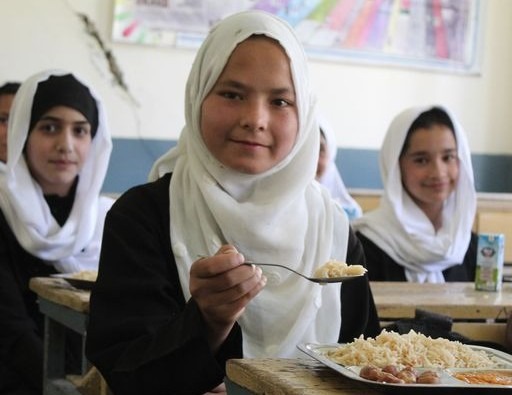Just over a year since the western forces left Afghanistan and the Taliban took control, millions of children have been left restricted and foodless.
According to the World Food Programme, 22.8 million people faced acute food insecurity in Afghanistan in June 2021, and 8.7 million faced emergency levels of food insecurity[1].
But conflict and restrictions mean that experts predict even more Afghans currently face hunger.
Women and girls have been unable to attend high school or work outside of the realm of domestic housework since last year, meaning that children without fatherly figures are forced into dangerous labour at a young age to provide for their families.
Sajad Mahmood, CEO of the food charity, Charity Right, explains, “We’ve seen many children face food insecurity as a result of the current situation. Should the male lead of the family become ill, injured or pass away, sources of income for food and other essentials are massively restricted.”
12 year old sisters in Kabul, Deeba and Sheeba, recently faced food insecurity when their father undertook back surgery and was unable to work.
Their mother and older sister carry out domestic work at others houses, but with nine mouths to feed, this income source hasn’t been enough. On returning from school, there often was no food to eat.
Samad Agha, a 14-year-old boy in Kabul has also been affected by the loss of a leading male figure. When his father died, the household’s main source of income was lost and Samad wasn’t receiving sufficient food to survive or attend school.
“Without a steady income of sufficient food, children in Afghanistan face the risk of entering the vicious poverty cycle, which restricts them to low paid and dangerous work.”, adds Mahmood.
How can children be supported in Afghanistan?
As conflict, control and unprecedented circumstances occur in Afghanistan, experts are relying on school feeding programmes to keep children in school for as long as possible.
Not only does this give them an education but relieves parental figures from the need to feed their children.
“Whilst the 1.1 million girls can’t currently attend higher education in Afghanistan, school feeding programmes aim to support females as much as possible throughout earlier years both nutritionally and intellectually.”, says Mahmood.
Speaking to the charity, Sheeba, Deeba and Samad have all been supported by school feeding programmes to help alleviate food worries.
With the instability of Afghanistan’s climate, along with ongoing conflict, experts believe this could be the most sustainable way to support children in the country right now.








